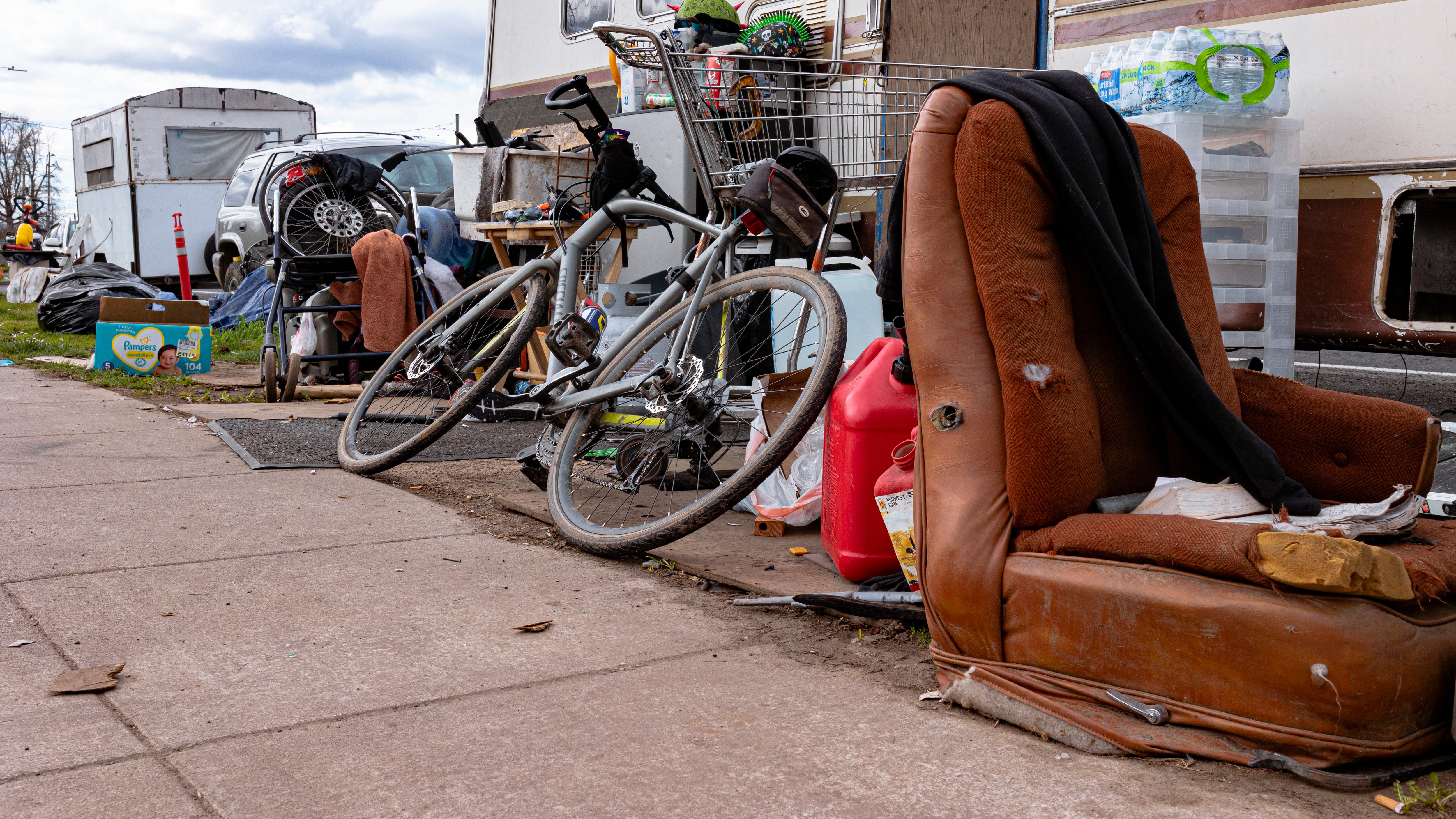In an interview with WW, Multnomah County Commissioner Sharon Meieran pointedly criticized Portland-area leaders for inaction on homelessness, saying “we don’t have a plan or even a kernel of a plan” for spending billions of taxpayer dollars to get unhoused people into stable shelter.
Meieran, an emergency room doctor, is particularly frustrated by city and county officials’ plans for spending the $2.5 billion bond measure Metro-area voters approved last May to provide services to houseless people.
“We have more resources available now than ever before,” Meieran told WW on April 21. “But we have what I consider to be a humanitarian crisis, and I feel there have been public health and public safety elements of that, and that we have not effectively addressed those.”
Meieran issued her criticism the same week Multnomah County Chair Deborah Kafoury announced her proposed 2022 budget.
“I am aligned with and really support the aim to bolster supportive housing and long-term rent assistance and prevention to keep [people] in their homes,” Meieran tells WW. “But what I feel is missing is the urgency and the scale that’s needed to really make a dent in this problem.”
Kafoury recommended that the county’s share of the funding from the Metro measure, a total of $52 million, be allocated to the Joint Office for Homeless Services to increase street outreach, provide rental assistance, and provide alternative and more permanent housing opportunities to people living on the streets.
If the funding indeed is allocated towards that plan, according to a statement from the county, it will “provide rent assistance, behavioral health and addiction services, increased shelter capacity and street outreach. The Chair’s plan for the measure would help as many as 1,300 households experiencing homelessness find and keep affordable, services-connected homes, and help nearly 1,000 more households keep the housing they already have.”
But Meieran tells WW she isn’t satisfied with the Joint Office’s plan for spending that allocation. She feels it lacks the granular detail required to move quickly.
She describes to WW what she say are unclear plans from county and city leaders so far in how the newly available funding will be used in practice, and she’s demanding swifter and more transparent planning and action.
“That frustration has existed for a while, a long time,” Meieran tells WW. “I don’t understand why we don’t have a plan or even a kernel of a plan that I’ve seen, that not just looks to do one or two camps and try to move a couple of things. Why don’t we have a coordinated plan to address sheltered homelessness in a way that lifts people up?”
The Joint Office—which, as its name suggests, is shared by Multnomah County and Portland City Hall—has issued plans for how it will spend its share of bond funds.
The Joint Office of Homeless Services compiled a lengthy document about how the money would be used under its plan. Some of the money will go to rental assistance, street outreach, and “new year-round shelter spaces across a range of models, from the construction of a congregate shelter for roughly 80 people to motel shelters to a significant expansion of alternative shelter options.”
But Meieran says the plan laid out by the JOHS—the coordinating board for the city and county for tackling homelessness—was vague, and she’s scared that layout will perpetuate an ineffective result.
“I feel a sense of urgency and I just don’t see action based on that kind of sense of urgency,” Meieran says.
Kafoury defended JOHS’ plan in a statement to WW.
“In the first year alone, beginning this July, we plan to create 1,300 new homes for people experiencing homelessness by providing deep rental subsidies and support services. Getting people into the existing stock of housing with these subsidies is much faster than waiting for new units to be built, and is often faster than setting up shelter or sanctioned camping sites. Most importantly, giving people the keys to their own home and the support services they need to remain housed actually ends people’s homelessness,” Kafoury said.
She added that her plan is “designed to help thousands of people permanently escape homelessness in Multnomah County by making the largest investment in supportive housing we have ever seen.”
Mayor Ted Wheeler’s office did not respond to a request for comment.
Last week, Meieran asked the city and county to coordinate an expedited plan to address homelessness, and get people into temporary shelters within the next six months.
Meieran’s six-month plan outlines timetables for each step of the process: Identify parcels of land (either private or city-owned) that could accommodate structures, hire the appropriate workforce, choose the types of structures and design the sites, determine the services offered at each site, build the sites, reach out to homeless people, and then move people in.
Getting that done in six months is an ambitious timeline. Meieran says that while the long game of having adequate and affordable permanent housing is crucial, she says more pressing is dealing with the immediate crisis now, and creating temporary housing, or short-term housing, for people currently on the streets.
“Maybe there’s a perception that if you use money to improve the plight of people living outside that that’s taking away from investing in permanent housing or prevention,” Meieran says. “But life and safety have to come first.”
Two budget work sessions and a public hearing will occur before the board votes on the final budget in early June.

